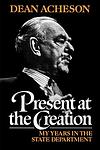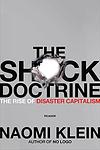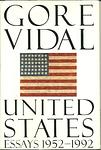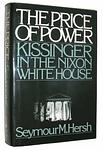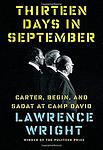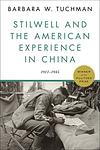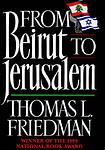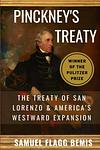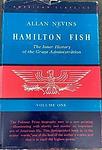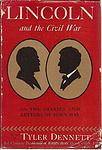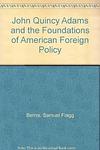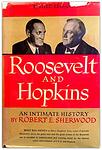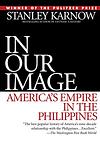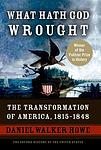The Greatest "Foreign relations" Books of All Time
Click to learn how this list is calculated.
This list represents a comprehensive and trusted collection of the greatest books. Developed through a specialized algorithm, it brings together 284 'best of' book lists to form a definitive guide to the world's most acclaimed books. For those interested in how these books are chosen, additional details can be found on the rankings page.
Genres
Foreign relations is a category of books that explores the political, economic, and social interactions between different countries and their governments. These books examine the relationships between nations, including their diplomatic ties, trade agreements, and military alliances. They also delve into the historical and cultural factors that shape these relationships, as well as the impact of global events and trends on international affairs. From treaties and negotiations to conflicts and crises, foreign relations books provide a comprehensive understanding of the complex dynamics that shape the world we live in.
Countries
Date Range
Reading Statistics
Click the button below to see how many of these books you've read!
Download
If you're interested in downloading this list as a CSV file for use in a spreadsheet application, you can easily do so by clicking the button below. Please note that to ensure a manageable file size and faster download, the CSV will include details for only the first 500 books.
Download-
1. The Autobiography of Benjamin Franklin by Benjamin Franklin
This book is an autobiography of one of America's founding fathers, detailing his life from childhood to adulthood. The author shares his journey from humble beginnings as a printer's apprentice to becoming a successful inventor, writer, businessman, and statesman. The book provides an insight into his thoughts and philosophies on various subjects such as education, self-improvement, and public service, offering a unique look at the early American history through his eyes.
-
2. The Last Lion by William Manchester
"The Last Lion" is a comprehensive biography of Winston Churchill, providing an in-depth look at his life, from his birth in 1874 to his death in 1965. The book covers Churchill's early years, his military service, his time as a journalist, and his political career, including his role as British Prime Minister during World War II. It also delves into his personal life, relationships, and struggles with depression. The book presents a nuanced portrayal of Churchill, highlighting his strengths, flaws, victories, and defeats.
-
3. Present at the Creation by Dean Acheson
This memoir offers an in-depth examination of American diplomacy and foreign policy during the early Cold War era. Penned by a former Secretary of State, it provides first-hand accounts of significant historical events like the Marshall Plan, the formation of NATO, and the Korean War. It not only provides a detailed account of the author's time in office but also offers his insights and perspectives on the geopolitical shifts of the time, making it a valuable resource for understanding the complexities of international relations during a critical period in world history.
-
4. The Shock Doctrine: The Rise of Disaster Capitalism by Naomi Klein
This book explores the concept of "disaster capitalism", the idea that global capitalism thrives on disaster and chaos. The author argues that free market policies are often pushed through while countries are reeling from wars, natural disasters, or economic crises. She provides a historical analysis of these events, from Chile in the 1970s, to Russia in the 1990s, to the war in Iraq, demonstrating how governments and corporations exploit these periods of shock to implement economic reforms that would otherwise be rejected.
-
5. United States: Essays 1952-1992 by Gore Vidal
This book is a collection of essays written over a 40-year period, providing an insightful commentary on the political, historical, and cultural landscape of the United States. The author's sharp wit and incisive analysis are evident as he discusses a wide range of topics, from literature and the arts to politics and public life. His observations on American society, its leaders, and its institutions offer a critical perspective on the evolution of the nation during the second half of the 20th century.
-
6. The Frugal Superpower: America's Global Leadership in a Cash-Strapped Era by Michael Mandelbaum
This book explores the impact of America's economic constraints on its global leadership role. The author argues that the growing national debt and the need to focus on domestic issues will force the United States to reevaluate and limit its international commitments. The book also examines potential scenarios for the world order if America withdraws from its global leadership role, ranging from a more multipolar system to the rise of more aggressive powers. The author emphasizes the need for careful management of this transition to avoid instability and conflict.
-
7. The Price of Power by Seymour M. Hersh
"The Price of Power" offers a critical examination of the presidency of Richard Nixon with a particular focus on the Vietnam War. The book delves into the secretive and often manipulative tactics employed by Nixon and his administration, including the undermining of peace talks to secure his own political victory. It presents a detailed and disturbing account of political maneuvering, deception and abuse of power at the highest level of American politics.
-
8. Thirteen Days In September: Carter, Begin, And Sadat At Camp David by Lawrence Wright
"Thirteen Days In September" by Lawrence Wright is a detailed account of the historic peace negotiations that took place between President Jimmy Carter, Israeli Prime Minister Menachem Begin, and Egyptian President Anwar Sadat at Camp David in September 1978. The book provides a behind-the-scenes look at the intense negotiations and personal dynamics between the leaders, as they worked to reach a peace agreement that would end decades of conflict in the Middle East. Wright's narrative is a gripping and informative account of a pivotal moment in modern history.
-
9. Stilwell and the American Experience in China by Barbara Wertheim Tuchman
The book is a detailed historical account of the American military experience in China from 1911 to 1945, specifically focusing on the life and career of General Joseph Stilwell. The narrative provides an in-depth look at Stilwell's efforts to train Chinese troops during World War II, his clashes with Chiang Kai-shek, and his role in the complex political dynamics of the time. It also offers a broader exploration of American-Chinese relations during this period, highlighting the cultural misunderstandings and political tensions that marked this chapter in history.
-
10. Crusade and Jihad: Islam and the Christian World by Bassam Tibi
This book explores the historical, ideological, and political aspects of the Crusades and Jihad, comparing and contrasting the two. It delves into the origins and evolution of the Crusades and Jihad, their impact on Christian and Islamic societies, and their relevance in today's world. The author also examines the role of religion in conflicts and the use of religious ideologies for political purposes, providing a comprehensive understanding of these complex issues.
-
11. From Beirut to Jerusalem by Thomas L. Friedman
This book is a comprehensive exploration of the Middle East and its complex history, politics, and conflicts, written by a journalist who spent a decade in the region. The author offers an insightful analysis of the Lebanese civil war, the Israeli-Palestinian conflict, and the broader regional dynamics, providing an in-depth understanding of the issues from a personal perspective. The book combines historical research, political analysis, and personal anecdotes, making it an engaging and informative read for anyone interested in Middle Eastern affairs.
-
12. A Problem from Hell: America and the Age of Genocide by Samantha Power
This book examines the United States' response to genocides in the twentieth century, including those in Armenia, the Holocaust, Cambodia, Iraq, Bosnia, and Rwanda. The author argues that America's political leaders have consistently ignored or downplayed the severity of these genocides, and she explores the reasons behind this inaction. The book also profiles individuals who have fought to bring attention to these atrocities and hold the perpetrators accountable.
-
13. The Dead Hand: The Untold Story of the Cold War Arms Race and Its Dangerous Legacy by David Hoffman
This book provides an in-depth exploration of the Cold War arms race, focusing on the creation, development, and deployment of nuclear and biological weapons by both the United States and the Soviet Union. It also delves into the dangerous legacy these weapons have left behind, including the threat of nuclear proliferation and bioterrorism. The book combines historical analysis with first-hand accounts and interviews, offering a comprehensive and chilling examination of a critical period in world history.
-
14. Pinckney's Treaty by Samuel Flagg Bemis
"Pinckney's Treaty" is an in-depth historical analysis of the 1795 agreement between the United States and Spain, also known as the Treaty of San Lorenzo. The book delves into the geopolitical implications of the agreement, which defined the boundaries between Spanish colonies and the U.S., provided for free navigation of the Mississippi River, and set terms for the prevention of Native American hostilities. It further explores the key figures involved in the negotiation and ratification of the treaty, their motivations, and the lasting impact of the treaty on U.S. territorial expansion and international relations.
-
15. Memoirs by George Frost Kennan
This memoir offers an intimate look into the life and career of a prominent American diplomat and historian, known for his significant role in shaping US foreign policy during the Cold War. The book provides a detailed account of his experiences in various diplomatic posts, his influence in developing the policy of containment against the Soviet Union, his views on nuclear weapons, and his critique of American foreign policy. It also shares personal reflections on his family, education, and personal life, giving readers a comprehensive understanding of his life and work.
-
16. Hamilton Fish by Allan Nevins
This biography delves into the life of Hamilton Fish, a prominent political figure in the 19th century who served as a Governor of New York, a United States Senator, and U.S. Secretary of State. The book explores his significant contributions to American politics, including his efforts to establish the Alabama Claims, his role in the annexation of the Dominican Republic, and his work to maintain peace during the controversial 1876 presidential election. It provides an in-depth look at Fish's political career, personal life, and the historical context in which he operated.
-
17. John Hay by Tyler Dennett
"John Hay" is a comprehensive biography that delves into the life and career of an esteemed American statesman, diplomat and private secretary to Abraham Lincoln. The book provides an in-depth exploration of Hay's role in shaping American foreign policy, notably his significant contributions during the Open Door Policy and the Panama Canal negotiations. It also sheds light on his personal life, relationships, and his journey from a humble background to becoming one of the most influential figures in American history.
-
18. John Quincy Adams and the Foundations of American Foreign Policy by Samuel Flagg Bemis
The book is a comprehensive biography of John Quincy Adams, focusing on his significant role in shaping American foreign policy. It details Adams' early years, his time as a diplomat in Europe, his tenure as Secretary of State under James Monroe, and his presidency. The book also provides an in-depth analysis of Adams' philosophy and strategy in foreign affairs, particularly his vision of America as a beacon of liberty and his efforts to establish the country as a dominant force in the Western Hemisphere.
-
19. Roosevelt and Hopkins by Robert E. Sherwood
"Roosevelt and Hopkins" is a detailed exploration of the relationship between President Franklin D. Roosevelt and his closest advisor, Harry Hopkins, during World War II. The book provides an inside look at the political maneuverings and decision-making processes of the American administration during this crucial period. It paints a vivid picture of the complex personalities of these two men and their roles in shaping the U.S.'s response to the global conflict.
-
20. In Our Image: America's Empire in the Philippines by Stanley Karnow
This book provides a comprehensive historical account of the relationship between the United States and the Philippines, from the time of Spanish colonial rule, through American occupation and its aftermath. It explores the motivations, actions and impacts of American imperialism in the Philippines, highlighting the cultural, political and economic influences that continue to shape the Philippines today. The book also delves into the complex interplay of power, resistance, and collaboration between the Americans and the Filipinos, providing a nuanced understanding of colonialism and its enduring effects.
-
21. What Hath God Wrought by Daniel Walker Howe
This book provides a comprehensive historical account of the United States from 1815 to 1848, a transformative period marked by the significant political, economic, and technological changes that shaped the country's future. The author explores key events such as the War of 1812, the rise of industrialization, the expansion of democracy, and the Mexican-American War. The narrative also delves into the role of religion, the evolution of communications with the invention of the telegraph, and the emergence of a distinct American identity.
-
22. George F. Kennan: An American Life by John Lewis Gaddis
This biography provides an in-depth look at the life of George F. Kennan, an influential American diplomat and historian during the Cold War. It explores his role in shaping American foreign policy, including his advocacy for a "policy of containment" towards the Soviet Union. The book also delves into Kennan's personal life, his philosophical beliefs, and his later criticisms of American policy, offering a comprehensive portrait of a complex and significant figure in 20th-century history.
Reading Statistics
Click the button below to see how many of these books you've read!
Download
If you're interested in downloading this list as a CSV file for use in a spreadsheet application, you can easily do so by clicking the button below. Please note that to ensure a manageable file size and faster download, the CSV will include details for only the first 500 books.
Download

